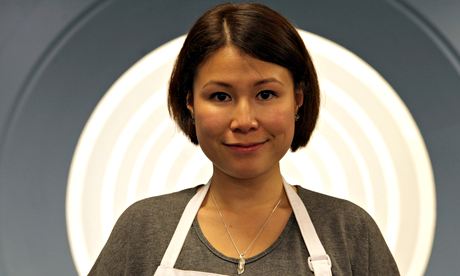Television moguls jostle to take control of the global audience | Media | The Guardian

A chance to Shine … MasterChef maker Shine owns 26 companies in 11 countries.
Rupert Murdoch's bold attempt to create one of the world's largest TV production businesses is the latest offensive in an increasingly frenetic battle of the media giants to control the hearts, and pockets, of viewers. Murdoch's Shine Group, maker of shows including MasterChef, will become part of a $2bn-plus joint venture that includes equity group Apollo Global's Endemol and American Idol maker Core Media.
Endemol, responsible for hits including Big Brother and Deal Or No Deal, is by far the largest of the three with revenues just over £1bn. Shine makes about £510m. This would indicate Fox will have to make a significant investment to take a 50% stake. However according to one person familiar with the talks, which have been going on for well over a year, this is not the case due to the huge debt pile Apollo is carrying into the deal.
For Murdoch, such a large-scale business will have more clout in deals with broadcasters, as well as being able to afford to take risks on new shows and fund the wave of new high-end dramas that cost more than £1m per episode. "The phrase 'content is king' is very much alive and kicking," says Johnathan Barrett, senior media research analyst at N+1 Singer. "There is more competition on the distribution side than ever before, such as from Netflix, which has meant there is more value in TV content across the board than there has been historically."
The agreement comes amid a flurry of activity in the TV industry, as the big players look to increase their scale amid rapid consolidation. Earlier this month John Malone's Liberty Global, which owns Virgin Media in the UK, and Discovery Communications paid £550m to buy Skins and Midsomer Murders maker All3Media. In the same week ITV displayed its insatiable appetite for gobbling up production companies again by taking control of Leftfield, maker of shows including Pawn Stars and Real Housewives of New Jersey, in a deal worth potentially as much as $800m.
The revitalisation of ITV's production business has been a key element in the broadcaster's turnaround. Last year ITV Studios saw revenues grow 20% to £857m, profits surged 24% to £133m. "It is increasingly difficult to make money in television and the bigger you are the safer you are," says one senior industry executive. "It is inevitable and it is as much defensive as offensive. Hollywood studios are doing it, ITV is doing it, Discovery is in there with All3Media, Sony is doing it. Now Fox has joined in."
The latest wave of consolidation has left some players with takeover aspirations – such as RTL's FremantleMedia, maker of shows such as The X Factor – suddenly short of prime targets to pursue. "RTL missed All3Media, and I think following Murdoch's deal they are vulnerable," says a second TV industry executive. "They have always been talked about as getting bigger and having m ore scale, but now the juicy assets in the UK have gone."
Murdoch's current focus is not just on content, as last week he also revived his pan-European pay-TV ambitions with a $14bn plan to create Sky Europe.BSkyB, in which Fox owns a 39% stake, is seeking to buy out Sky Italia and Sky Deutschland, which Fox controls. Barrett says that Sky may be able to strike more cost-effective deals for big sports and movie rights. "European regulators have indicated they don't like geographic boundaries and country-by-country rights sales," he adds. "Even if regulators never move to act on those indications Sky will get more leverage with rights holders as a pan-European player anyway."
Murdoch is not the only media giant intent on deals involving production companies or broadcasters. Sky's strategy mimics that of Malone's Liberty Global, which has spent billions buying cable TV companies including Virgin Media for £15bn last year.
The wave of consolidation in the TV market has primarily been led by the big American pay-TV giants. This month Viacom became the first US owner of a UK public service broadcaster, after it paid Richard Desmond £450m to buy Channel 5. Discovery, which recently bought Eurosport and Scandanavian TV company SBS, was also a leading contender in the race for 5.
John McVay, chief executive of independent producers' trade body Pact, says the rush of activity from big players like Murdoch is not necessarily the bad thing some observers assume. "What people are doing – Viacom, Discovery, Murdoch – is about positioning in a global TV market and how the UK fits into that," he says. "It doesn't necessarily mean any less competition in the market, in many ways it could mean more. I certainly don't think any of it means the end of the world for the British TV industry."
Endemol Revenue: more than £1bn. Owns 90 companies in 30 countries. Key shows include Big Brother, Deal Or No Deal and Peaky Blinders.
Shine Group Revenue: £510m. Owns 26 companies in 11 countries. Key shows include MasterChef and The Biggest Loser.
Core Media Group Revenue: unknown. Key shows include American Idol and So You Think You Can Dance.